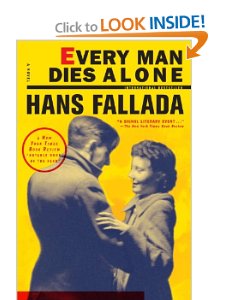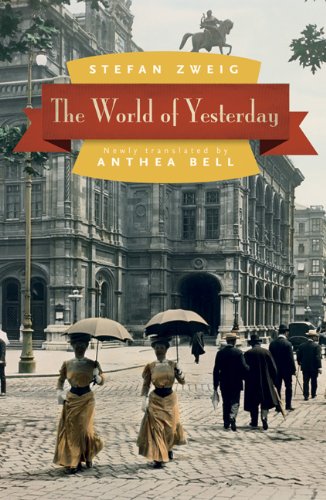I have two books at the top of my list. One is the extremely emotive World War II novel, Every Man Dies Alone, based on a true story, by Hans Fallada. (Aside – he took his pen name from Fallada, the noble horse in the fairy tale. Do you remember when they cut the horse’s head off and put it on the castle wall? He would give the Prince advice from there, but much was ignored, a la Cassandra of Troy. The name fits perfectly when you read the story.) Even for a military history buff like me, this book taught me so much more of what it felt like to be a German trapped in that society.
The other is by Stephan Zweig, The World of Yesterday, described here by Amazon: “Written as both a recollection of the past and a warning for future generations, The World of Yesterday recalls the golden age of literary Vienna—its seeming permanence, its promise, and its devastating fall.
Surrounded by the leading literary lights of the epoch, Stefan Zweig draws a vivid and intimate account of his life and travels through Vienna, Paris, Berlin, and London, touching on the very heart of European culture. His passionate, evocative prose paints a stunning portrait of an era that danced brilliantly on the edge of extinction.
This new translation by award-winning Anthea Bell captures the spirit of Zweig’s writing in arguably his most revealing work.”
It was a beautiful book with a superb translation from the German. Stephan Zweig restarted his life twice – once after World War I, when he had to leave Vienna, and again as a Jew after World War II. By the time of the Second World War, he was so famous that Hitler could not have him out and out killed, but tortured him in degrees by systematically searching every house over and over while he tried to write. Zweig couldn’t face that second start and walked into the ocean with his wife and committed suicide several years after the War. Don’t worry, that doesn’t spoil this story or the wonderful descriptions of his life as a child. As he described the stuffy heater, the smell of old socks and the wriggling of little boys on the bench bored by their old school teachers, I could see it, smell it and feel it.

